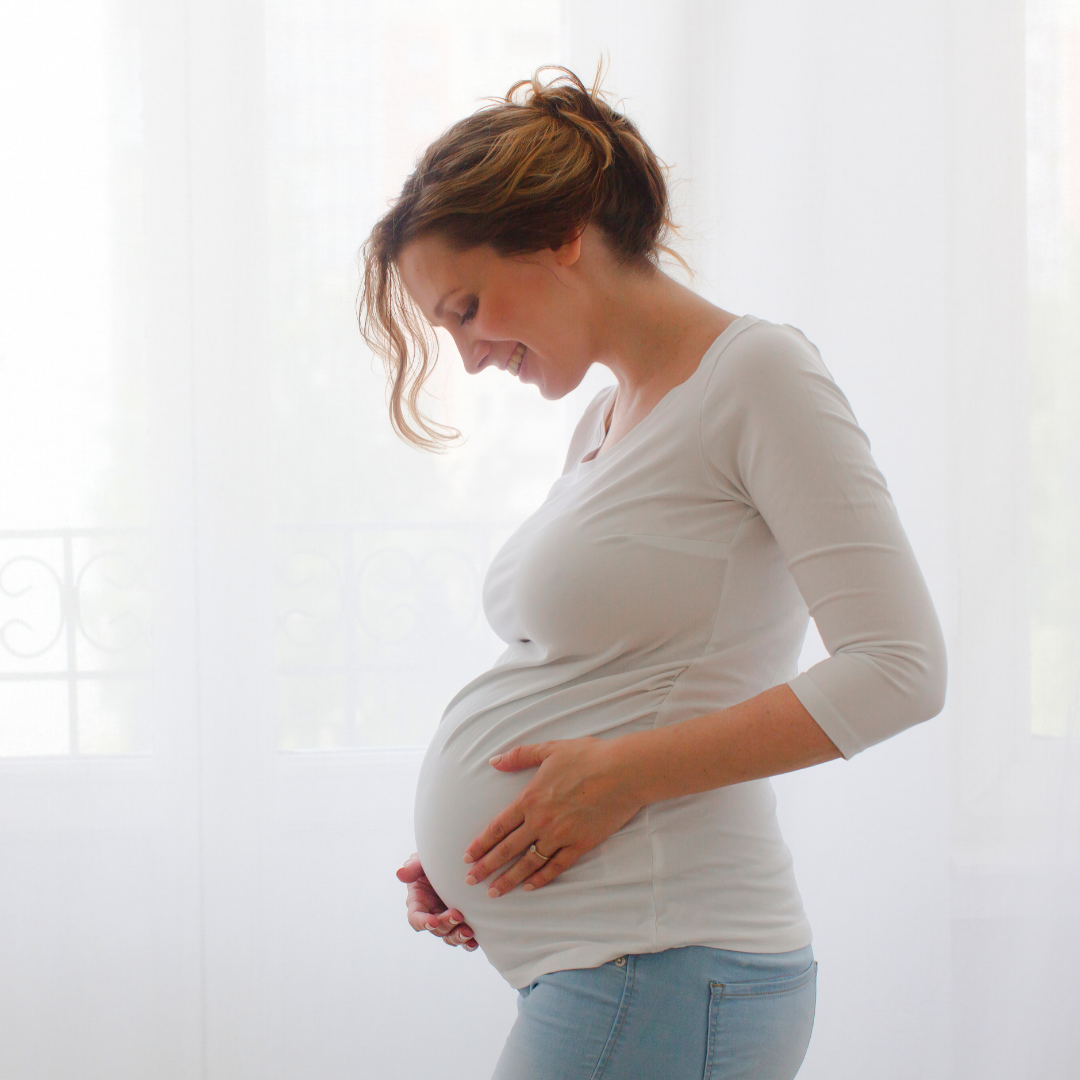
Samantha Stephenson shares her struggle to meet the physical changes of motherhood with prayerful acceptance.
I didn’t love the way I looked in a bikini before I had children. I fretted over perceived imperfections, poured time and money into fixing them. I drank green juices, combined cardio with weights, and observed the scale intently for feedback about my efforts. I gave up sugar. I worked out daily, often twice a day. I sacrificed the joy of cooking hearty, delicious meals because comfort food doesn’t lead to a smaller waistline. And, as it always is with the paradox of perfectionism, the more “success” I had, the more consumed with my flaws I became. It was how they say it is with drugs; the little wins were no longer “ high” enough; I needed “more” to feel the same level of satisfaction. More pounds lost, more compliments, more heads glancing my way as I passed.
Here I am, two weeks postpartum, afraid to look in the mirror. Tiny streaks scream red across a crinkling mass of skin. Nine months of stretching taught and full, it now hangs loose. Like a discarded dress crumpled on the floor, there’s no body now to give it form. Pangs of regret and shame well up and spill over, tears hot and angry on my cheeks. Shame compounds shame as I berate myself for these feelings over what is superficial, what should be trivial. As my stomach slowly shrinks after baby number two, I remember how I looked in a bikini before having children, and I feel so many things about myself—all of them ugly.
Derision towards my past self for having so little appreciation for my own beauty before it was stolen. Resentment of my pregnant self for doing so little to prevent this. Impatience with my current self for feeling these, for feeling so much regret over something that is both beyond my control and reflects nothing of my character. Sadness for my husband, who has more love in his life than ever, but at the cost of a less beautiful wife. More than any of it, I want to be beautiful for him again.
“Amen, amen, I say to you, unless a grain of wheat falls to the ground and dies, it remains just a grain of wheat; but if it dies, it produces much fruit.” (John 12:24)
In order for something greater to grow, something lesser has to die.

My stomach stretches taut again, home to another growing baby. I pass myself in the mirror and this time, I allow myself to really look. I see the red lines, faded now to purple. They are less noticeable, but assuredly permanent. The more dramatic difference is internal. I see the evidence of beauty marred, what was lost that I once wept so bitterly for and recognize that just as time has faded these marks, it has also transformed my feelings.
As dearly as it’s cost me, I’d rather be left with these stretch marks than my vanity. Each line is a chain broken, a door to deeper freedom, a chance to let go. I was, as St. Paul says, a slave to things of this world, and in many ways I still am. But my stretch marks are a reminder of Who and what I am living for. I am made for the dynamism of eternity, not the static stillness of a fashion magazine. Did I know this before? Of course. But it is one thing to know a thing. To live a truth is something else entirely.
The more painful crucible has been learning to let my husband love me—me, as I am. The longer we are married, the more the illusion that I can earn his love is shattered. My gifts of cookies and kisses and lipstick used to go to him with a price tag, an expectation of affection offered in return. The smaller, the weaker, the lesser I am, the more deeply I understand the power and the purity of his love. The way to receive a gift is to accept it, not to try to pay for it. I married him willing to accept something so much cheaper than what he was prepared to give me.
The marks on my body don’t reflect the state of my soul, but somehow they have helped me to more clearly see and surrender my own woundedness. They free me just a little bit more from the burden of having to prove my own loveliness. They are a gift—the marks of the love we have born, and the opening to a well of love that runs even deeper still.

Copyright 2022 Samantha Stephenson
Images: Canva
About the Author

Samantha Stephenson
Samantha Stephenson is a Catholic bioethicist, homeschooling mother of four, and author of several books helping Catholic moms grow in prayer and nurture family life. She also writes about faith, family, and the future of being human at the Choosing Human newsletter on Substack. Connect with her at SNStephenson.com.


.png?width=1806&height=731&name=CatholicMom_hcfm_logo1_pos_871c_2728c%20(002).png)
Comments